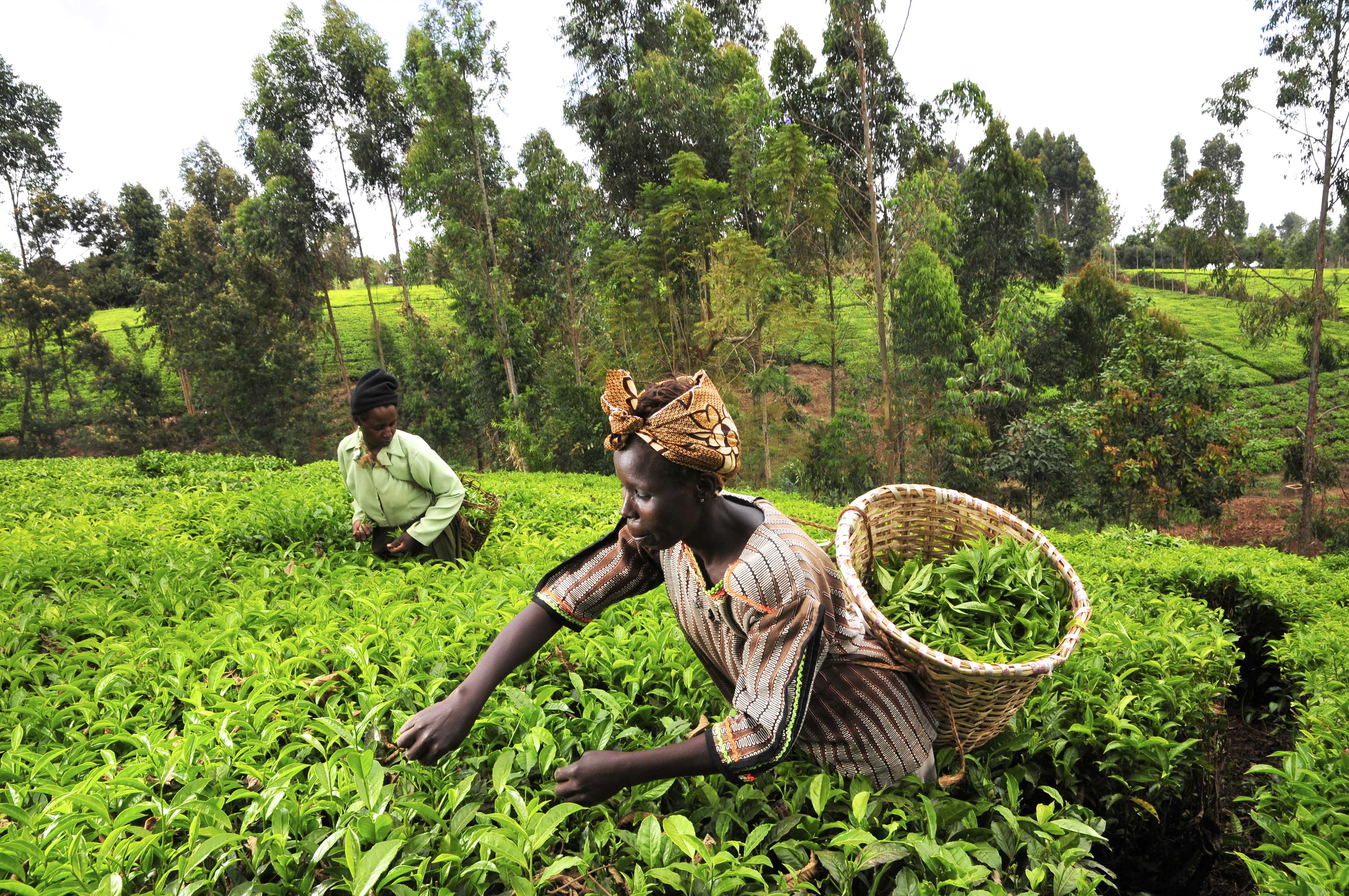A promising new continent-wide trade agreement for Africa


Tea farmers in Kenya. Photo Credit: iied.org
The new African Continental Free Trade Agreement (AfCFTA) is expected to be a game changer, boosting inter-African trade, spurring manufacturing, and creating economic opportunities. But for its benefits to be realised, the details need to be negotiated; and Africa’s leaders need to commit to AfCFTA for the long haul.
On 21 March 2018, 44 African states signed the African Union’s (AU) AfCFTA in Kigali, Rwanda. According to the AU, which initiated the process in 2015, the goal is to “Create a single continental market for goods and services, with free movement of business persons and investments,” with the purpose of accelerating intra-African trade. If, and when, all 55-member states of the AU sign the AfCFTA, the African Trade Policy Centre (ATPC) notes that the trade agreement will, “Cover a market of 1.2 billion people and a GDP of US$2.5 trillion [more than €2 trillion].”
Among the largest African economies, Nigeria and South Africa have not yet signed the AfCFTA. Nigeria’s President is facing pressure from labour unions and other groups who believe that the agreement will hurt the Nigerian economy by undermining local businesses. South Africa indicated its political support for the AfCFTA but stated that further internal consultations, as mandated by its constitution, were needed before signing it.
Implications for tariffs and trade
With current tariffs of 6%, ATPC notes that African businesses face higher tariffs when they export within Africa than when they export outside the continent. As AfCFTA eliminates tariffs on intra-African trade, this should encourage African businesses to trade within Africa. Intra-African trade could be boosted by more than 50% if import duties are eliminated, estimates the UN Economic Commission for Africa (UNECA), and intra-African trade doubled if non-tariff barriers are also reduced.
However, as smaller countries cannot compete with larger, better developed economies, the International Center for Trade and Sustainable Development notes that it is essential that, “The agreement actually works for countries at different levels of development.” The AU’s Boosting Intra-African Trade Action Plan (BIAT) may help; the Plan has identified seven programmatic areas, for example, trade facilitation, which will reduce road blocks and simplify customs and transit procedures at borders. AU members can use the plan to prioritise policy reforms required in these seven areas to benefit fully from AfCFTA. As UNECA notes, the BIAT Action Plan essentially complements AfCFTA with the former focusing on supply-side constraints to intra-African trade, and the latter on market access and demand-side constraints. However, according to a UNECA assessment, the BIAT Action Plan is currently hampered by three main challenges: a lack of institutional structure, an absence of monitoring and evaluation mechanisms, and insufficient resources.
Another key point, as UNCTAD notes, is that about 80% of all intra-African trade already flows through one or more of eight existing regional economic communities (RECs). What will it take for the AfCFTA to supplant the piecemeal approaches of these other agreements? Asmita Parshotam, an international trade and development expert with the South African Institute of International Affairs states that, “This will depend on whether the AfCFTA is able to supersede some of the RECs, or at least have one or two of them collapse into the overarching structure with time in its attempts to consolidate continental and regional efforts.”
Also See: IFAD Announces $1m Project to Increase Agriculture in East Africa
Enhancing productivity
One way some countries can begin to benefit from the AfCFTA is to begin to integrate their products into regional value chains, particularly when they can’t meet standards for participating in global value chains. This may be especially applicable to the agricultural sector. Despite agriculture providing up to 60% of all jobs in Africa, and 25% of GDP, the share of agricultural commodities in intra-regional trade has been quite low – less than 30% according to UNCTAD. TradeMark East Africa’s senior director of trade environment, Richard Kamajugo agrees, “Agriculture is a sector with room for significant productivity improvements, especially through enhancing agro-industry and agro-processing, given that the African market (intra-African trade) has accounted for over 50% of the growth in processed food exports from African countries since 2000.”
In 2006, the AU Declaration of the Abuja Food Security Summit called for promoting intra-African trade in rice, maize, legumes, cotton, oil palm, beef, dairy, poultry and fisheries products at the continental level. UNCTAD has identified additional promising products, such as potato and tea, which have shown the most potential for integrating into value chains. Kamajugo notes that, “By facilitating trade, and thereby reducing transaction costs, AfCFTA will enhance regional value chains. Growth rates for several agricultural commodities are also expected to increase.”
Must Read: US to Improve Farm Produce with Sh11.5bn
However, some countries may have less to gain by stepping into the agreement. Kamajugo notes that, “As a vital component, the AfCFTA will need measures that promote integration of vulnerable groups with limited capacity and skills into larger value chains. Among these are simplifying documentation for trade regimes, such as rules of origin requirements, providing support to meet standards for phyto-sanitary requirements and re-skilling enterprises so they can focus on export competitiveness.”
Taking all these variables into account, and with the underlying instruments of the agreement still to be harmonised, many countries are taking a wait-and-see approach. “At the end of the day,” Parshotam notes, “political commitment is necessary and political will, together with technical, financial and human resources, is what will drive AfCFTA’s implementation. This will involve give and take amongst leaders, especially as the AfCFTA is rolled out at domestic levels and there is a need to drive support for implementation.”
Culled: spore.cta.int
You May Be Interested In:
- Agripreneur Of The Week – Rotimi Williams of Kereksuk Rice Farm
- EIB, AfDB Invest $70m in Agriculture, Business in Nigeria
- Farmcrowdy Garners Up To £1,620,000 From Nigerian and Diasporan Investors Into The Agricultural Sector





